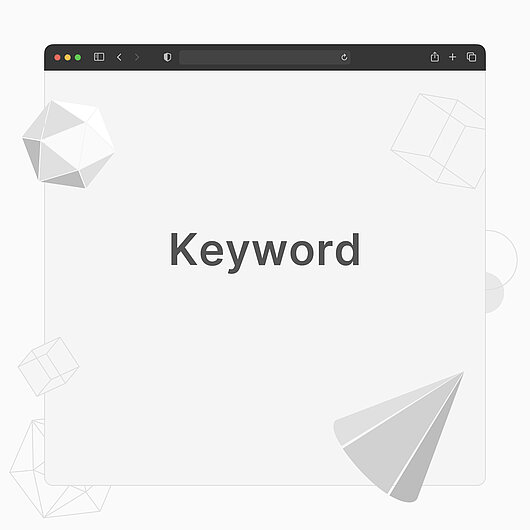- Why Us?
- Features
White Label
For SaaS Platforms & Agencies
Provide our complete analytics suite to your clients, directly within your own interface and with your/their own branding. Discover Analytics-as-a-Service and White Label Analytics. Great benefit, minimal effort.
- Pricing
- White Label
- Success Stories
- Partner
- ResourcesExpand Your Knowledge
Keyword
TL;DR

Keywords are the search queries used by people to discover new sites or pages with specific content. Searchers, crawlers, and website owners rely on keywords to connect the content on a webpage to the person looking for it through search engines.
What is a Keyword?
A keyword (or a phrase) in terms of SEO represents the ideas and topics used by people in search engines in order to find pages with relevant content. These keywords are also referred to as "search queries."
They usually summarize the main topic of webpages, so as content creators, the primary keywords should be ones that are most relevant for both the business and its products or services, as well as terms people search for to get the expected results in search engine results pages.
Why, Where, and How to Use Keywords?
Keywords are highly valuable because they connect the information on the website content and what people search for in search engines.
By using relevant keywords, the searcher's need is fulfilled, the website ranks higher on search engines, and it drives organic traffic.
To correctly used keywords on a page or website, make sure to consider the following suggestions:
- Perform keyword research and create a set of primary keywords.
- To make sure you selected the right keywords, carefully choose the right target audience and their interests regarding the website. For example, if you own a designer clothing shop, you might want to rank for "showroom" — but if you're not careful, you might end up attracting traffic that's interested in finding showrooms for cars, or furniture.
- If possible, use the primary keyword in the website URL.
- Add the primary keyword to the heading tag (H1, H2, etc.) of the page, meta description, and alt attributes - as long as it is relevant, and it makes sense for the reader.
- Avoid keyword stuffing, duplicate content, and make sure to have a decent keyword density within a page or website.

